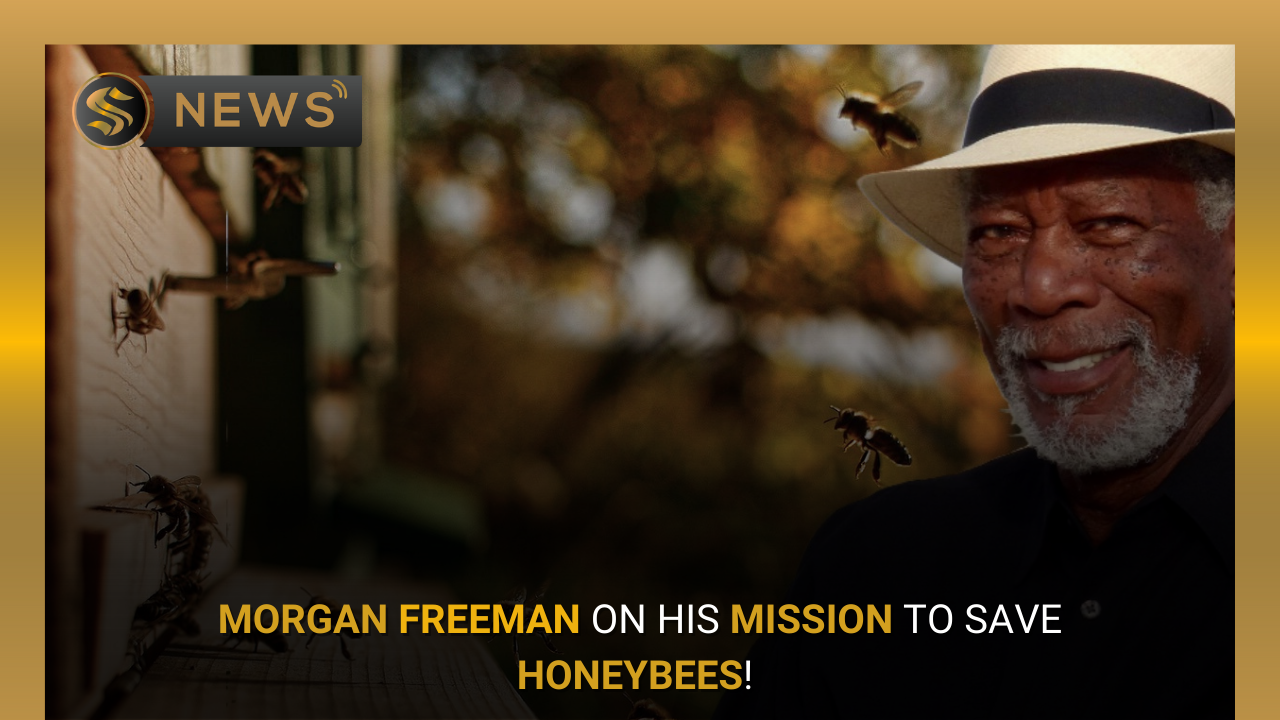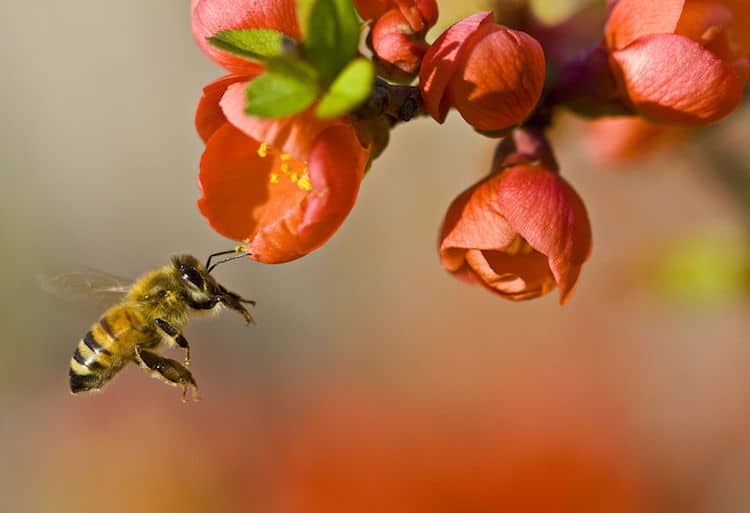
Share This Story, Choose Your Platform!
Morgan Freeman Dons Beekeeping Gear to Transform his 124-Acre Land into a Buzzing
Award-winning actor Morgan Freeman has recently announced his plans to convert his 124-acre land in Mississippi into a bee sanctuary.
Global Decline in Honeybee Population
The 84-year-old Hollywood icon, who is also a committed environmentalist, hopes that the sanctuary will help to address the global decline in bee populations and raise awareness about the importance of pollinators.
The move comes after Freeman began beekeeping on his ranch in Mississippi in 2014, having been inspired by his friend and fellow actor, Tim Robbins. Freeman has since become an avid beekeeper and has been outspoken about the urgent need to protect bee populations.

Freeman’s Concerns
According to Freeman, bees are “the foundation of the growth of the planet,” and without them, our food supply and ecosystem would be in jeopardy.
Freeman’s bee sanctuary will feature dozens of hives and will be home to a wide variety of bee-friendly plants, including clover, magnolia trees, and fruit trees. The sanctuary will also be pesticide-free, and Freeman plans to work with local farmers to encourage them to adopt bee-friendly practices.
In a statement, Freeman explained his motivation for creating the sanctuary, “I have been concerned about the decline in bee populations for years. Bees are vital to our ecosystem, and without them, we would lose a significant portion of our food supply. I wanted to do something to help protect bees and raise awareness about their importance and creating a bee sanctuary felt like the best way to do that.”
Significant Concern for Environmentalists
The decline in bee populations is a significant concern for environmentalists and scientists worldwide. Bees are critical pollinators and are responsible for pollinating approximately 75% of the world’s food crops, including fruits, vegetables, and nuts. However, in recent years, bee populations have been declining at an alarming rate due to a combination of factors, including habitat loss, pesticide use, climate change, and disease.
Other Efforts to Protect Bees
Freeman’s bee sanctuary is not the only effort being made to protect bee populations. Governments, non-profits, and private individuals are all working to address the issue. In the United States, the Pollinator Health Task Force was created in 2014 to address the decline in bee populations, and many states have enacted laws to protect bees and other pollinators. Additionally, there are many beekeeping organizations and initiatives around the world, such as the Honeybee Conservancy and the World Bee Project, that work to raise awareness about the importance of bees and promote bee-friendly practices.
Freeman’s bee sanctuary is still in the early stages of development, and it is not yet clear when it will be open to the public. However, the actor hopes that the sanctuary will inspire others to take action to protect bees and other pollinators. Freeman said, “I hope that my bee sanctuary will be a model for others to follow. We all have a role to play in protecting bees and other pollinators, and I encourage everyone to take action to help save these vital creatures.”
You May Also Read
Saudi Arabia Launches 400-High Cube-Shaped Skyscraper
The announcement of Freeman’s bee sanctuary has been met with enthusiasm from environmentalists and beekeepers around the world. Many have praised the actor for using his platform to raise awareness about the importance of bees and for taking action to protect them. The news has also sparked discussions about the need for more bee-friendly practices and policies, both in the United States and globally.
Conclusion
Morgan Freeman’s decision to convert his 124-acre land into a bee sanctuary is a significant step towards protecting bee populations and raising awareness about the importance of pollinators. With bee populations declining at an alarming rate, it is essential that individuals, governments, and organizations take action to address the issue. Freeman’s bee sanctuary serves as a model for others to follow and is a reminder that we all have a role to play in protecting the planet’s vital ecosystems.




